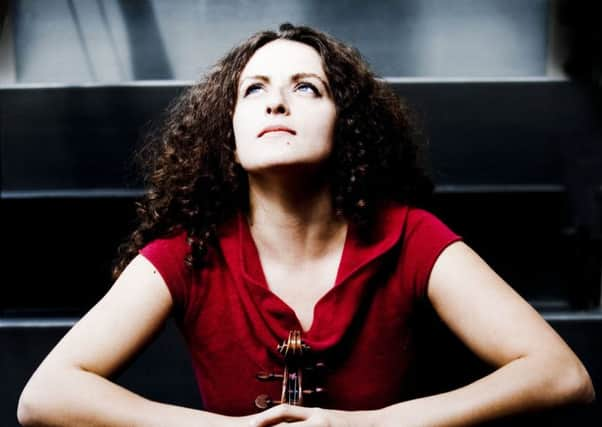Classical review: Lammermuir Festival opening weekend


Classical | Lammermuir Festival opening weekend | East Lothian
A huge audience had been shoehorned into St Mary’s Parish Church, Haddington, for the opening evening, with John Butt’s Dunedin Consort giving a sumptuous, thoroughly sensual account of Monteverdi’s opulent 1610 Vespers (JJJJJ). It’s already one of the Renaissance’s most extravagant musical creations, and Butt’s supple, wonderfully dramatic account was entirely faithful to the piece’s theatrical demands, with voices echoing the length of St Mary’s nave, and a trio of hidden tenors singing from behind the listeners. In Butt’s hands, it was as if each of the Vespers’ movements was propelled by dramatic necessity – seldom can choral polyphony have sounded more like voices literally jostling for attention.
Advertisement
Hide AdAdvertisement
Hide AdBoth coaxing and commanding with his tighly focused movements, he brought an astonishing richness and smoothness to his Dunedin forces’ sound, with Elizabeth Kenny supplying assertive theorbo accompaniments and the ancient brass instruments of His Majestys Sagbutts & Cornetts resonating to splendid effect within the Church’s generous acoustic. His seven singers, too, gave exceptionally characterful, committed performances, dripping in expressive ornamentation.
By the walls of sound in the closing Magnificat, the Vespers felt overwhelming in their grandeur, but there was something to savour in every moment. It is hard to imagine a more exquisite, deeply felt performance.
The following evening stayed in Haddington, but fast-forwarded a century or so for Handel from Edinburgh-based Ensemble Marsyas under director Peter Whelan (JJJJJ), principal bassoon at the Scottish Chamber Orchestra, and an urgent, compelling director in front of his own period-instrument band. And rarely can musicians have looked so utterly absorbed in their music: there was a sense of barely restrained energy and enthusiasm in their propulsive Water Music, with instrumentalists dancing and swaying along to Whelan’s bracing rhythms. They followed it with Handel’s Apollo and Daphne, a mini-opera in all but name, with bass Callum Thorpe giving off just the right swagger and sneering sexuality as the predatory god, and soprano Mhairi Lawson floating effortless lines as his unwilling prey Daphne, but also snarling her refusal to give into his wishes. By Thorpe’s tender, hushed conclusion, it felt like it had been a journey of transformation for both of them.
In between, however, came a more mixed afternoon recital from Dutch violinist Liza Ferschtman and Uzbek-born pianist Roman Rabinovich (JJJ), the Festival’s artist in residence, in Prestonkirk Parish Church. Rabinovich’s rich, resonant playing felt disconcertingly at odds with Ferschtman’s bright, sharply etched violin tone, and their performances, too, though strongly characterised, sometimes struggled to convince, with a rather over-emphatic Debussy Sonata, and a Beethoven G major Sonata Op. 96 that felt hard-won rather than effortless. Nevertheless, their stirring, sometimes unapologetically violent Bartók Rhapsody No 1 was full of fantasy and authentic Magyar spirit – a neat reflection of the vim and vigour across Lammermuir’s opening weekend.